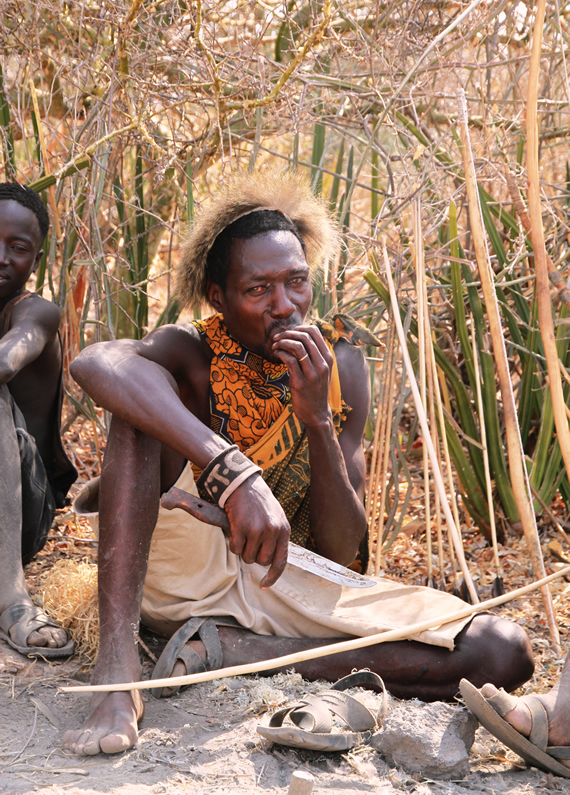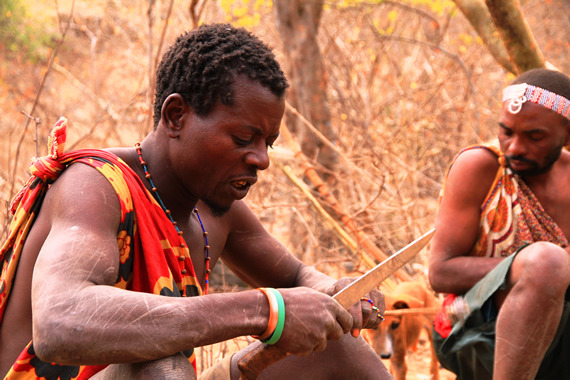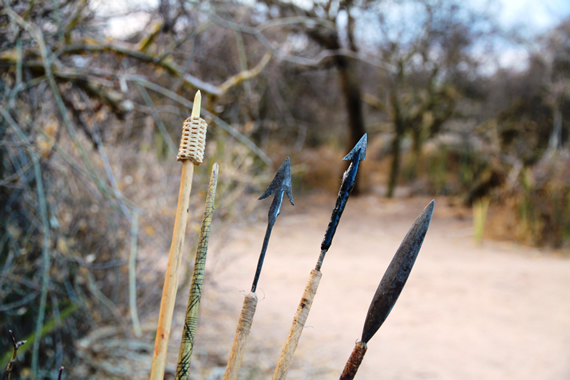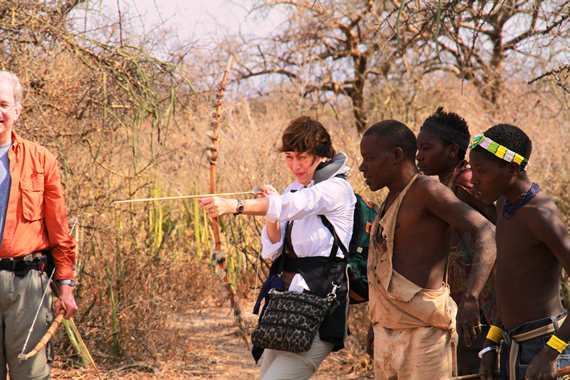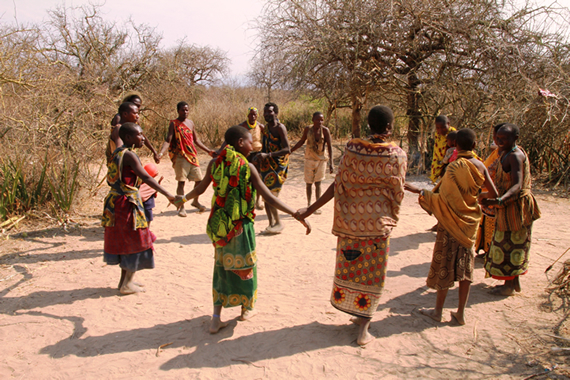I recently had the great privilege of travelling to Tanzania, an extraordinary country of diverse cultures and geography of unrivaled beauty. While there, we had the opportunity to spend a half-day with the Hadzabe, a tribe located near Lake Eyasi east of Karatu.
The Hadza tribe of people might be regarded as the equivalent of a living fossil, since they are Tanzania’s only remaining tribe of true hunter-gatherers. Their language is one of only two in the country that are a click-based tongue. They are at most 2000 in number.
They have refused all attempts to modernize. During the 1960’s the government built brick houses with piped water, schools and a clinic. Within ten years, the settlement had been abandoned as the Hadza returned to their traditional way of life.
Since then, the government has accepted their right to lead their lives as they choose, and has set aside a large tract of land for their use, although that is considerably smaller than it had been hundreds of years ago due to changing migration and weather patters. Also, they are the only people in Tanzania automatically exempt from taxes.
They live in nomadic family bands of around 20 adults and numerous children. They have no permanent dwellings, but rather erect shelters of light grasses and branches within a few hours that they utilize for between 10 days and a month. Their movements are influenced by changes in weather or local game distribution.
Their division of labor is gender-specific. The women and children collect roots, seeds, tubers and fruits, accounting for about 80% of their diet. The men are hunters, using poisoned arrows to kill roughly anything that can be consumed. Baboons are the ultimate delicacy.
What struck me most was their uncanny ability to live in the present. They are the ultimate purveyors of sustainability. They live off the land, taking no more than is required to live, and leave no trace. Their lifestyle places no stress on the environment.
With the assistance of a guide and translator, we were invited to participate in a “hunt.” They literally run when they sense an animal that could be easy prey. With their skillful aim, they are able to shoot and hit their targets with the precision of masters. After their successful kill of a bird and a squirrel, we were invited to dine as they roasted and shared each animal, effortlessly and with very little spoken communication.
Here are the Leadership Lessons I took away from this experience:
- Speak little. Observe a lot.
The Hadza people spoke very little. Their communication was through sensing what was needed from each other and simply doing it. We didn’t observe any arguing or dissension, but rather interactions that flowed organically and easily to accomplish a given task. - Have redundant, cross-trained roles.
There was no chief and no one in charge. Everyone (within a gender) was competent to participate in whatever needed to happen. - When the group wins, everyone eats.
We observed the experience of collective sharing, in both task and enjoyment. They offered to share their cannibis and their food from the hunt, (both of which we declined!) even though the kill was quite small and insufficient to feed twelve men. They were satisfied that they had done it together, and accepted what it was for that day. - Victory only happens through team.
Even though some of the young men were better hunters than others, they all participated in the hunt, each finding the role that suited him best; some scouted, some distracted, and some shot. They knew they might not get anything, but if they did, it would be because they did it together. - Everyone prospers because the goal is to take care of the group.
The American notion of individualism did not even occur to these people. They processed only as a group, and knew that their very survival depends upon their ability to work together collaboratively. - We are responsible for people, even those that are not part of our formal community.
It was readily apparent that we were not able to keep up with them as they quickly scampered over the often rocky terrain uphill. Yet they turned back often to make sure we weren’t far behind. They accommodated us and welcomed us to their traditions. - Focus on what truly matters
By focusing only on what is right in front of them, they appeared to have more “leisure” time. In fact, some anthropologists that have studied them have found that they only work 4-6 hours per day, compared to our 8-12 hour working days. These people actually have to survive in the wild, with no creature comforts, yet somehow they had time for dancing, singing, and sitting around the fire smoking. - Live in the present and live happily
The Hadzabe have no notion of time as we know it. They experience no “stress” as it relates to the future, because there is no “future” time. They focus on what they need to do right now, and don’t worry. They know they have everything they need in and among themselves in order to sustain life, just as they have done for 100,000 years.
I welcome your reaction to this post, and look forward to hearing how this may apply to you!


